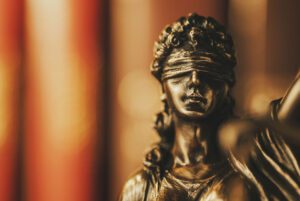 The dissent concluded with the following in relevant part: In 2016, the American Civil Liberties Union (ACLU) sought to test this practice. It filed motions with the FISC asserting that the First Amendment provides a qualified right of public access to opinions containing significant legal analysis—even if portions must be redacted. The ACLU argued that the FISC had authority to consider its motion pursuant to its inherent “power over its own records and files.” The organization noted that other courts have a long history of exercising just this power to ensure public access to their judicial decisions. In the end, however, both the FISC and the FISCR refused the ACLU’s request. In fact, they refused even to consider the question, claiming they lacked authority to do so.
The dissent concluded with the following in relevant part: In 2016, the American Civil Liberties Union (ACLU) sought to test this practice. It filed motions with the FISC asserting that the First Amendment provides a qualified right of public access to opinions containing significant legal analysis—even if portions must be redacted. The ACLU argued that the FISC had authority to consider its motion pursuant to its inherent “power over its own records and files.” The organization noted that other courts have a long history of exercising just this power to ensure public access to their judicial decisions. In the end, however, both the FISC and the FISCR refused the ACLU’s request. In fact, they refused even to consider the question, claiming they lacked authority to do so.
Now the ACLU has filed a petition for certiorari asking this Court to review these decisions. In response, the government does not merely argue that the lower court rulings should be left undisturbed because they are correct. The government also presses the extraordinary claim that this Court is powerless to review the lower court decisions even if they are mistaken. On the government’s view, literally no court in this country has the power to decide whether citizens possess a First Amendment right of access to the work of our national security courts. Today the Court declines to take up this matter. I would hear it. This case presents questions about the right of public access to Article III judicial proceedings of grave national importance. Maybe even more fundamentally, this case involves a governmental challenge to the power of this Court to review the work of Article III judges in a subordinate court. If these matters are not worthy of our time, what is? Respectfully, I dissent.
The Government’s position highlights the continued weaking of our state and federal judicial branches while the executive powers continue to grow. Our constitutions are supposed to guarantee checks and balances between the three branches of government. A very narrow exception is supposed to exist in times of true crisis wherein there is no real access to the courts. “Emergency powers” have been liberally used by our state and local governments with escalating frequency as a means to permit the executive to act without oversight from our courts or legislatures.
